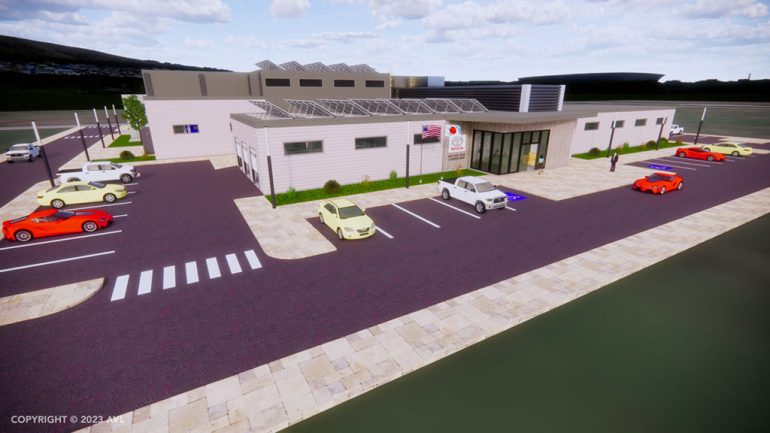
Toyota plans to construct a cutting-edge vehicle battery testing laboratory at its North American research center in Michigan, investing approximately $50 million in the project. The facility, located in York Township near Ann Arbor, will primarily focus on testing batteries designed for hybrid and electric vehicles. These batteries will be sourced from a new factory in North Carolina, as well as various battery suppliers. Instead of creating new employment opportunities, Toyota will assign existing workers from other departments and provide them with necessary training.
Scheduled to commence operations in 2025, the lab holds the potential for expansion in tandem with the production growth of electric vehicles. Its core functions will involve performance, quality, and durability testing, as well as assessment of charging capabilities. Jordan Choby, the group vice president of powertrain at Toyota, expressed excitement about the facility, emphasizing its capacity to facilitate experimentation and pursue new opportunities aligned with technological advancements and evolving business needs.
Also, don’t forget that you can get discounted new car pricing with a free quote through qualified local dealer partners.
Toyota’s commitment to advancing electric vehicle production is further demonstrated by its recent announcement to invest an additional $2.1 billion in a battery factory currently being constructed near Greensboro, North Carolina. This investment brings the total expenditure on the Randolph County plant to $5.9 billion and aligns with Toyota’s ambitious objective of selling 1.8 million electric or hybrid vehicles in the United States by 2030. Ground was broken on the plant in 2021. Initially, the batteries produced at this facility will supply Toyota’s extensive complex in Georgetown, Kentucky, which will be responsible for manufacturing the company’s first domestically produced electric vehicle—an SUV with three rows of seats.
Under the leadership of President Koji Sato, Toyota has vowed to undertake an assertive shift toward vehicle electrification, including a stronger emphasis on hybrids. However, the company has faced criticism from environmental organizations for lagging behind in electric vehicle sales and relying heavily on gasoline-powered hybrids for future sales. These recent investments and initiatives indicate Toyota’s determination to overcome these challenges and establish a more prominent presence in the electric vehicle market.